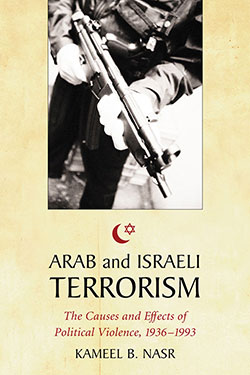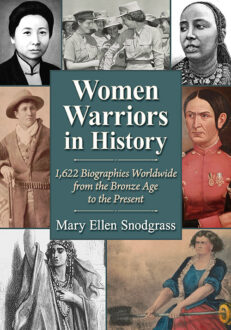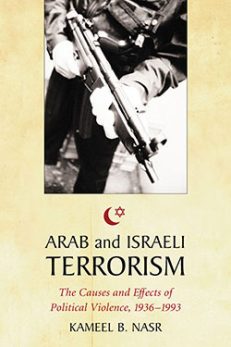Arab and Israeli Terrorism
The Causes and Effects of Political Violence, 1936–1993
Original price was: $39.95.$19.99Current price is: $19.99.
In stock
About the Book
Historically, terrorism has generally failed as a means to reach a political objective. Most often, terrorist incidents have brought fear to the civilian sector, but only served to harden the attitudes of governments. Despite this, indiscriminate, anticivilian violence steadily increased in the last half century, particularly in the Middle East.
This work provides an historical overview of terrorism in the region, focusing on specific guerrilla actions. The hijackings of the 1960s, the Black September attack during the 1972 Munich Olympics, and the rise of Abu Nidal are all covered thoroughly, as are many other groups and incidents in the Middle East. The ineffectiveness of counter-terrorism, showing how it often precipitates the rise of small terrorist cliques, is also covered. Particular attention is given to Israel’s response to terrorism and the effect of terrorism on the country’s development and national psyche.
About the Author(s)
Bibliographic Details
Kameel B. Nasr
Format: softcover (6 x 9)
Pages: 269
Bibliographic Info: 29 photos, notes, bibliography, index
Copyright Date: 2007 [1996]
pISBN: 978-0-7864-3105-2
Imprint: McFarland
Table of Contents
Preface 1
Introduction 3
1. The Arab General Strike 9
2. The Struggle for Statehood 17
3. Israel’s Use of Arab Disguises 26
4. Birth of the Palestinian Guerrillas 36
5. We Have Taken Over Your Flight 48
6. Black September vs. Mossad 58
7. The Rise of Abu Nidal 77
8. The Rejectionists 84
9. Abu Nidal in Iraq 90
10. Intelligence Capability 101
11. Death to the Arabs 107
12. Death to the Jews 118
13. Lebanon War 125
14. Deadtime 136
15. The Heyday 145
16. The Questionable 1980s 159
17. The Business of the FRC 174
18. Holy Wars and Hollywood: The Manufacture of Modern Terrorism 185
19. Greece 193
20. The Departure of Abu Bakr and the Death of Abu Iyad 201
21. Conclusions 207
Notes 215
Bibliography 247
Index 257
Book Reviews & Awards
“an excellent resource…provides an emotional historical analysis of the Arab-Israeli conflict”—Crime and Justice International; “its usefulness comes…in his often detailed accounts of famous Palestinian militants”—Journal of Palestine Studies.





